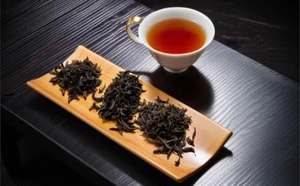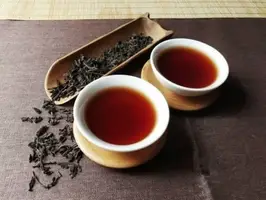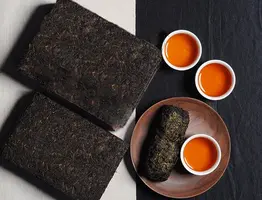Chinese black tea, known in China as “hong cha” (red tea), is distinct from Western black teas despite sharing the same full oxidation process. The key difference lies in regional production techniques and flavor profiles. While black tea worldwide is fully oxidized, Chinese black tea often emphasizes a balance of sweetness, floral notes, and subtle fruitiness, setting it apart from robust and malty styles commonly found in Indian or Sri Lankan black teas.
Some of the most celebrated Chinese black tea varieties include:
Keemun (Qimen) Black Tea: Originating from Anhui Province, Keemun is famous for its smooth, slightly smoky flavor with hints of plum and orchid, often considered one of the world’s finest black teas.
Dianhong Black Tea: Hailing from Yunnan Province, Dianhong is known for its bright reddish liquor, rich aroma, and a full-bodied taste with malty and sweet undertones.
Yunnan Black Tea: This variety often features large, golden leaf tips and offers a rich, earthy flavor with chocolate and spice notes.
Traditional Chinese black tea production is a meticulous process involving withering, rolling, full oxidation, and careful drying. Unlike some mass-produced black teas, Chinese methods prioritize preserving natural aroma and taste nuances through handcrafting and controlled fermentation, which contributes to their unique and diverse flavor profiles.
Nutritional and Chemical Composition of Chinese Black Tea
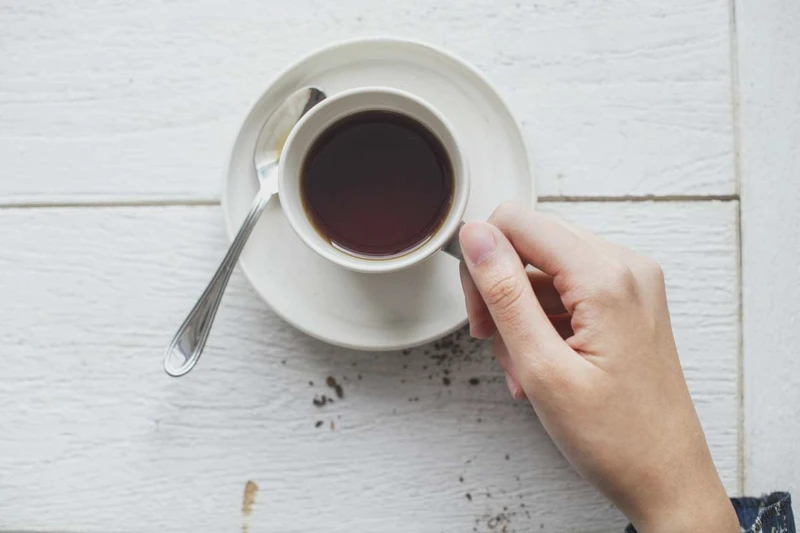
Chinese black tea is packed with beneficial compounds that make it more than just a flavorful beverage. The key antioxidants include theaflavins, polyphenols, and catechins, which help protect your body from oxidative stress. These antioxidants are linked to many health benefits, such as supporting heart health and reducing inflammation.
When it comes to caffeine, Chinese black tea typically contains less than coffee but more than most green teas. This makes it a great choice if you want a gentle energy boost without the jitters. Aside from caffeine, Chinese black teas like Keemun or Yunnan also offer essential amino acids, vitamins, and minerals like manganese and potassium, contributing to overall well-being.
The unique balance of these nutrients explains why Chinese black tea is appreciated not just for taste but also for its nutritional profile.
Comprehensive Health Benefits of Chinese Black Tea
Chinese black tea offers a range of health benefits that make it more than just a tasty drink. Here’s how it supports your well-being:
Heart Health
- Boosts cardiovascular function by improving blood flow and reducing bad cholesterol.
- Rich in theaflavins and antioxidants that help lower the risk of heart disease.
Digestion and Gut Health
- Helps enhance digestion by promoting good gut bacteria.
- May reduce digestive discomfort and support regular metabolism.
Weight Management
- Contains compounds that aid in metabolism regulation.
- Can support gradual, healthy weight loss when combined with a balanced diet.
Immune System Support
- Loaded with antioxidants that fight free radicals.
- Helps strengthen your body’s immune defenses.
Mental Alertness and Brain Function
- Natural caffeine content keeps you alert without the jitters.
- Supports cognitive function and memory over time.
Oral Health
- Contains natural substances that fight oral bacteria.
- May help reduce plaque and promote healthier gums.
Anti-inflammatory and Anti-cancer Potential
- Studies suggest Chinese black tea has anti-inflammatory effects.
- Some research shows promising anti-cancer properties, mostly thanks to its polyphenols.
| Benefit | How It Works | Key Compounds |
|---|---|---|
| Cardiovascular Health | Improves circulation, lowers cholesterol | Theaflavins, antioxidants |
| Digestion | Promotes gut bacteria and metabolism | Polyphenols, catechins |
| Weight Management | Boosts metabolism | Caffeine, polyphenols |
| Immune Support | Neutralizes free radicals | Antioxidants |
| Mental Alertness | Provides steady caffeine boost | Caffeine |
| Oral Health | Reduces bacteria and plaque | Natural antibacterial compounds |
| Anti-inflammatory | Lowers inflammation | Polyphenols |
Traditional Uses and Cultural Significance
Chinese black tea has long played an important role in both traditional medicine and daily life. In Chinese medicine, it’s valued for its warming properties and ability to support digestion and circulation. People often drink it to help balance the body’s energy, especially during cooler months or after heavy meals.
Beyond health, black tea is woven into daily routines and social customs. It’s a common offering during family gatherings and a symbol of hospitality. The tea’s rich aroma and smooth taste make it a favorite for relaxing moments and meaningful conversations.
Ceremonially, Chinese black tea is featured in various rituals, including weddings and festivals, where it represents respect and good fortune. These practices highlight the cultural importance of tea beyond just a beverage — it’s a connector of generations, a healer, and a tradition keeper.
How to Brew the Perfect Cup of Chinese Black Tea
Brewing Chinese black tea the right way makes all the difference in flavor and health benefits. Here’s a simple step-by-step guide to help you get the best cup every time:
- Tea leaves: Use about 1 to 1.5 teaspoons of loose Chinese black tea per 8-ounce cup.
- Water temperature: Heat water to around 200 to 212°F (just below boiling or boiling). This hot water helps release the tea’s rich flavors and antioxidants.
- Steeping time: Steep the leaves for 3 to 5 minutes. Longer steeping can make it bitter, while shorter keeps it light and fresh.
- Preparation tips:
- Rinse the tea leaves briefly with hot water before brewing. This awakens the leaves and removes dust.
- Use filtered water for a cleaner taste.
- If you want more antioxidant benefits, avoid adding milk or sugar, since they can reduce absorption.
- For a lighter brew, you can steep twice—just add fresh hot water after the first cup.
Following these simple steps can help you enjoy not just the great flavor but also the full range of Chinese black tea benefits.
Comparing Chinese Black Tea with Other Tea Types
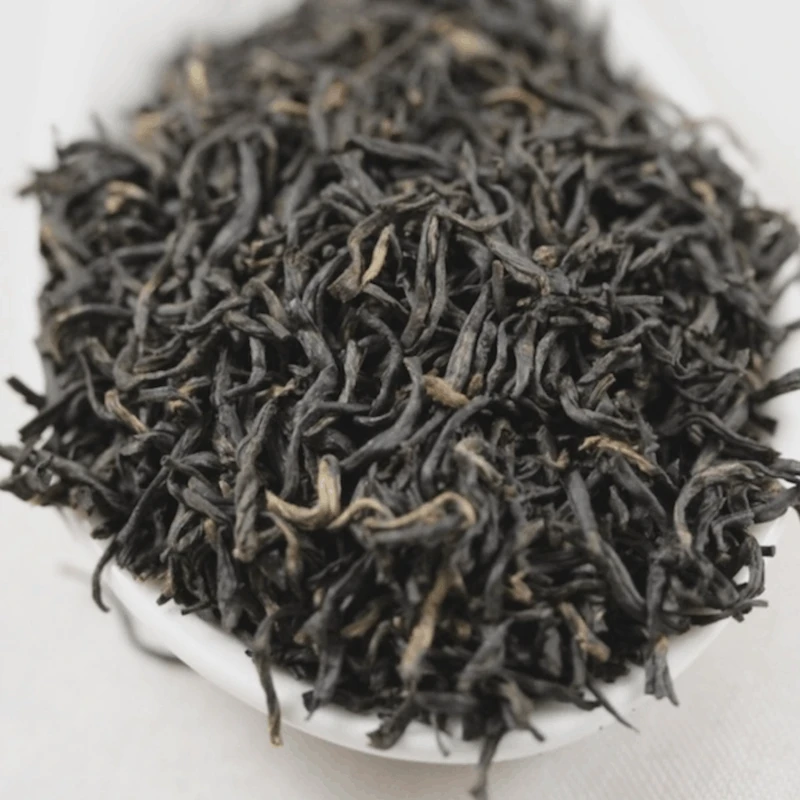
When it comes to tea, Chinese black tea stands out but also shares some traits with other popular varieties like green tea, oolong, and black teas from other regions.
Key Differences and Similarities
| Tea Type | Oxidation Level | Flavor Profile | Caffeine Content | Health Benefits Highlights |
|---|---|---|---|---|
| Chinese Black Tea | Fully oxidized | Rich, malty, sometimes fruity | Moderate | Strong antioxidants, heart health, weight management |
| Green Tea | Unoxidized | Fresh, grassy, light | Lower than black tea | High in catechins, boosts metabolism |
| Oolong Tea | Partially oxidized | Floral, fruity, sometimes creamy | Moderate | Supports digestion, improves brain function |
| Other Black Teas | Fully oxidized | Bold, sometimes smoky | Moderate to high | Antioxidants, cardiovascular support |
Unique Benefits of Chinese Black Tea
- Distinctive Flavor: Chinese black teas like Keemun and Dianhong offer a complex, smooth taste that’s less bitter compared to some black teas from India or Sri Lanka.
- Balanced Caffeine: It provides a stimulating but steady caffeine kick, often gentler than coffee or stronger black teas, suitable for daily use.
- Rich in Theaflavins: These antioxidants are more abundant in Chinese black teas, which might give extra support for heart health and anti-inflammatory effects.
- Cultural Depth: More than just a drink, it’s deeply tied to traditional Chinese medicine and rituals, which isn’t the case with all other teas.
Chinese black tea offers a nice balance between flavor, caffeine, and health perks, differentiating it from greener or lighter teas. Its unique antioxidants and cultural heritage give it a special spot for tea lovers in the U.S. looking for both taste and wellness benefits.
Potential Side Effects and Precautions
While Chinese black tea offers many benefits, it’s important to be aware of potential side effects and precautions:
Caffeine Sensitivity: Chinese black tea contains caffeine, though usually less than coffee but more than some green teas. If you’re sensitive to caffeine, drink it in moderation to avoid jitters, insomnia, or increased heart rate.
Medication Interactions: Some compounds in black tea can interact with medications like blood thinners or heart drugs. If you’re on medication, check with your doctor before adding large amounts of black tea to your diet.
Digestive Issues: Drinking too much black tea on an empty stomach may cause stomach upset or acid reflux in some people.
Daily Limits: For most adults, sticking to 3–4 cups a day is safe and helps you enjoy the health benefits without overdoing caffeine.
Where to Buy Authentic Chinese Black Tea
Finding genuine Chinese black tea can be a bit tricky, especially with so many options on the market. To make sure you’re getting real, high-quality tea, look for these signs:
- Origin labeling: Authentic Chinese black teas like Keemun, Dianhong, or Yunnan black tea usually specify their region clearly on the packaging.
- Whole leaves: High-quality black tea leaves should be mostly whole or large pieces, not dusty or overly broken.
- Fresh aroma and color: Good Chinese black tea offers a rich, warm aroma and deep reddish-brown liquor when brewed.
- Reputable sellers: Choose well-known online tea shops or specialty stores that source directly from China or trusted importers.
Some reliable brands and sellers that US customers often turn to include:
- Teavana (for broad selections and quality assurance)
- Adagio Teas (offers many Chinese black tea varieties with detailed descriptions)
- Yunnan Sourcing (specializes in authentic teas from Yunnan and surrounding regions)
- Local specialty tea shops that focus on Asian teas and maintain freshness by rotating their stock regularly
To avoid fakes or low-quality blends, it’s best to avoid super cheap bulk tea with vague descriptions. Stick to trusted sellers who provide information about the tea’s origin, harvest, and flavor profile. That way, you can enjoy the full benefits and authentic taste of Chinese black tea.

